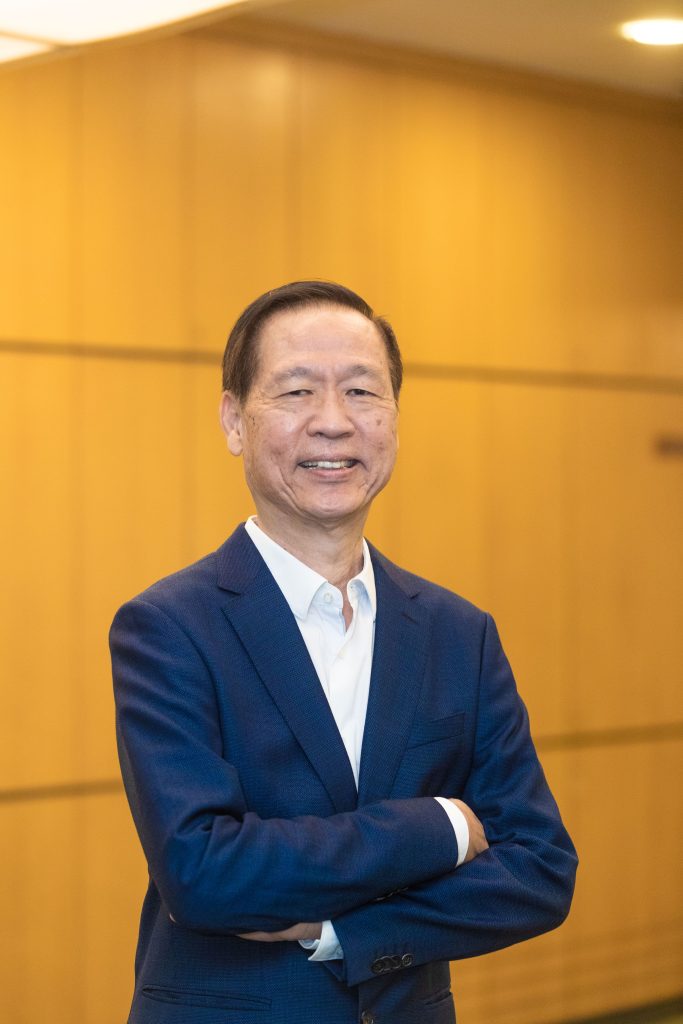Movement of Healthy Churches: Sign 1 – Growing Leadership
By Rev Robert Lum, Eternal Life Assembly

A healthy church will have growth in the leadership in two aspects, personal (quality) and leadership base (quantity). Rev Robert Lum explains the importance of these two.
“Everything rises and falls on leadership.” John Maxwell.
A crucial aspect of a healthy church is the growth of the leadership. There are two aspects:
I. Personal development of a leader (quality);
II. Expansion in the leadership base (quantity).
I firmly believe that there is room for every person to grow—spiritually, intellectually, emotionally and socially as well as in leadership skills.
I. Personal Development of a Leader (quality)
2 Timothy 2:15, one of my life verses, says, “Do your best to present yourself to God as one approved, a worker who does not need to be ashamed and who correctly handles the word of truth.” To present ourselves approved to God, we strive to develop to the fullest potential that God has placed in us. I firmly believe that there is room for every person to grow—spiritually, intellectually, emotionally and socially as well as in leadership skills.
In my years as a pastor, I know that stagnancy is not an option. It is very important that I keep growing in my relationship with God. It is easy for a leader to be so busy with ministry that he has little or no time to give his attention to worship, to hear God’s word or be sensitive to the Holy Spirit. Perhaps a leader feels complacent because he has strong foundations and does not need the time with God anymore. The truth is contrary—the greater our role in leadership, the more we need God.
It is also important for a leader to grow in other areas. Leaders must keep abreast of contemporary mindset and culture to remain relevant in an ever-changing world. While it is true that the God’s word does not change, the application of the word must relate to current situations. It is not enough to quote, “Thus says the Lord”. We need to study God’s word, understand the present issues and ask the Holy Spirit to guide us to apply the principles of the Word to the complexities of life.
Leading in a church is stressful. We must develop emotional and mental strength and resilience. On one hand, Christian ministry has eternal implications. On the other, we are human and the people we lead are human. It is easy for a leader to give up when there are personal challenges and team conflicts. Paul says, “All athletes are disciplined in their training. They do it to win a prize that will fade away, but we do it for an eternal prize.” (1 Corinthians 9:25 NLT) As leaders, let us stand firm and encourage one another to be steadfast in God’s calling.
The greater our role in leadership, the more we need God.
Another area of personal development is leadership skills e.g. leading a team, planning a meeting, organizing an event, motivating volunteers, etc. I encourage leaders to be avid learners. The Chinese says, “活到老,学到老” (“learn as long as you live.”) We must upskill or be left behind. For years, I was resistant to using digital Bible study tools. Nothing beats opening a book and flipping through the pages, right? Until I discovered that there are tons of study resources available digitally and online. When COVID-19 struck our nation, church leaders were forced to learn ZOOM and Microsoft Teams. We realized that social media platforms play a key role in reaching the NOW generation. I hope that senior leaders will not be resistant to change. Rather, we will embrace innovative technology and avenues and lead the church to expand the work of God.
II. Expansion in the Leadership Base (quantity)
The other aspect of growing leadership in a healthy church is to expand the number of leaders. It does not matter if a church is big or small. We must continually develop leaders. We see this when the early Church appointed deacons to serve alongside the apostles (Acts 6:1-6). Paul told Timothy, “And the things you have heard me say in the presence of many witnesses entrust to reliable people who will also be qualified to teach others.” (2 Timothy 2:2) The raising of leaders is intentional—“entrust to reliable people who will also be qualified to teach others.” A leader must identify potential leaders who are Christ-like. They should possess leadership qualities and are learners. This will ensure that the ministry of the church is not dependent on a single or a handful of leaders. A healthy church will have a training program, formal or informal, to develop the members and raise leaders. We must also offer opportunities for younger or newer leader to have practical experience (co-lead or lead under supervision). This takes faith in God and confidence in the new leaders. Evangelist Myles Munroe says, “Leadership success is measured by the success of your successor.”
We must continually develop leaders.
A pool of leaders will pave the way for a smooth succession of leadership. To all the leaders in the church, I like to quote Peter’s words, “And when the Chief Shepherd appears, you will receive the crown of glory that will never fade away.” (1 Peter 5:4) May we be better leaders and raise more leaders for God’s kingdom!

Rev Robert (Bob) Lum grew up in Eternal Life Assembly since his conversion in 1967. After a five-year banking career, he became a full-time Christian minister in 1985 and was appointed as senior pastor in 1992. Known for his friendliness and passion, Bob is a “people’s pastor”. He is married to Dorothy and they have three daughters, three sons-in-law and two grand-daughters and three grandsons.




